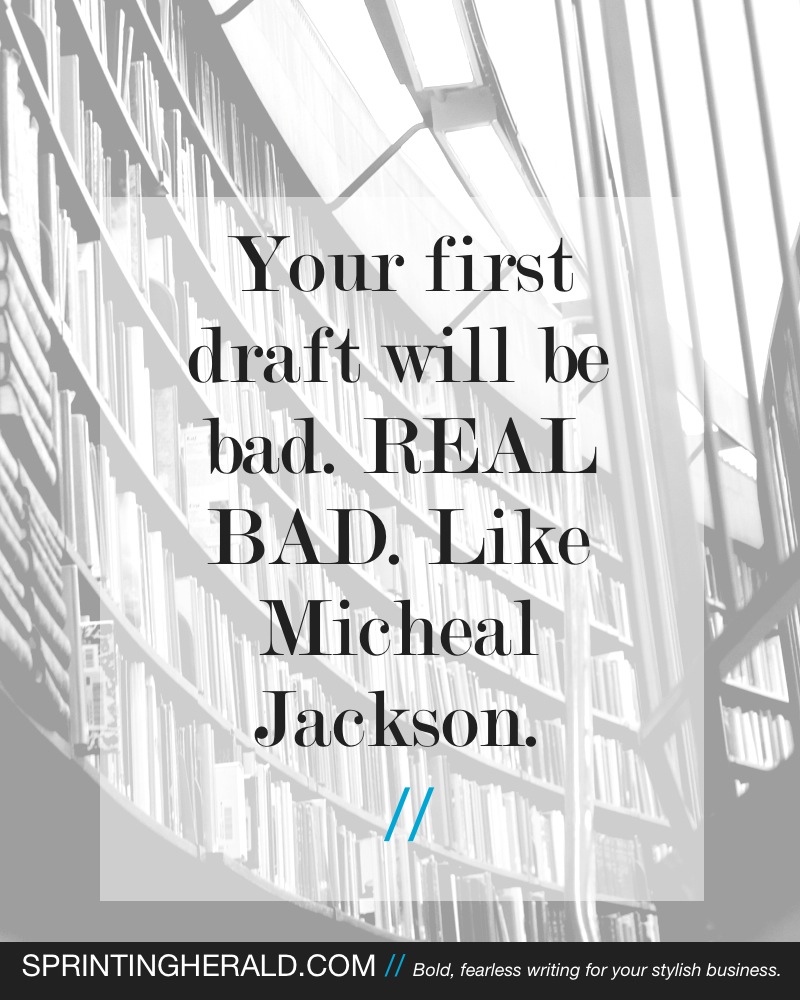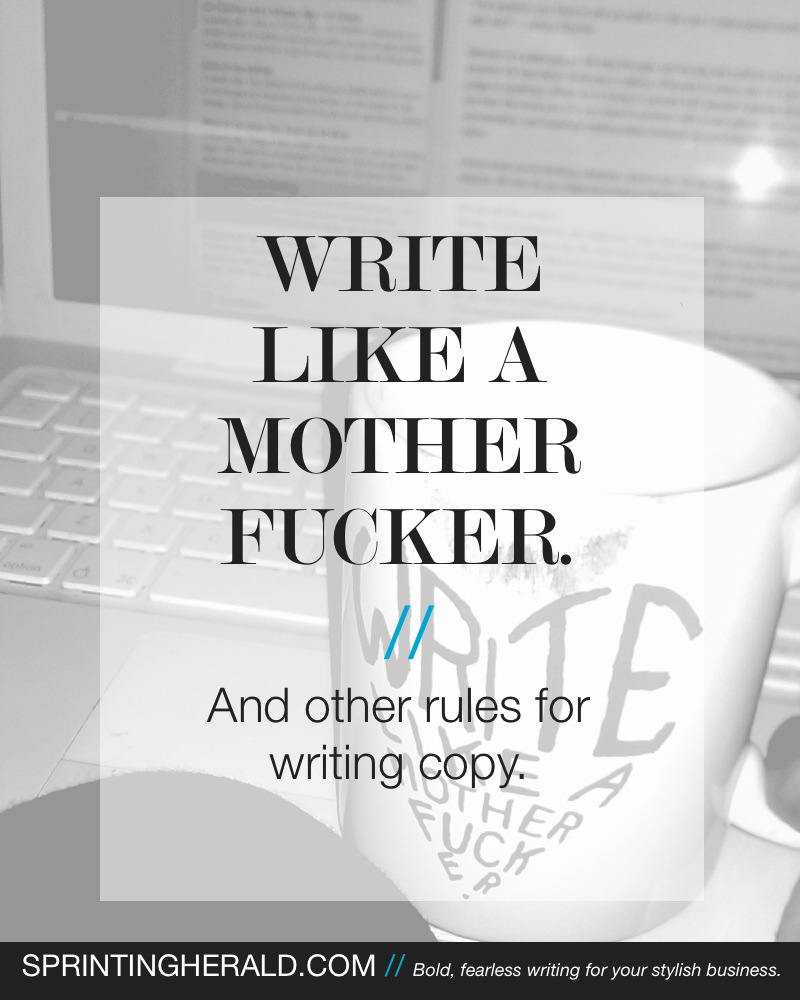
I’m convinced fear is at the root of most bad writing. – Stephen King
Writing is hard. Most people make mistakes. Even the best writers create shitty first drafts—drafts littered with misspelled words, unclear ideas and passive voice.
And?
(This is where you take a moment to envision my emotionless Karl Lagerfeld facial expression.)
Don’t let fear keep you from creating content for your business. Do what you need to do to just start. Brainstorm an outline. Write the middle of the document first. Or the end. Just get words on the page. You can’t edit copy words that ain’t there. You can’t make your shitty first draft into a slick piece marketing collateral there’s nothing to work with.
Think of your first draft as your chance to get your ideas on the page. Your chance to include all your terrible jokes in your writing. Your chance to not care about what ideas you throw at the canvas. Anne Lamott, who wrote Bird By Bird, explains this well. She says, your first draft is your “child’s draft, where you let it all pour out and then let it romp all over the place, knowing that no one is going to see it and that you can shape it later.”
Conquer the blank page. Write that shitty first draft.
Set a goal and plan to meet it.
#SorryNotSorry, but this isn’t a slick or sexy piece of advice. Whether it’s a word count or a time limit, sit down in the chair and finish it. Set a realistic goal that allows you to win by completing it. Don’t allow lofty word counts to lead you to self-sabotage. Try writing 50 words, then 100 words. Or set a time limit of 30 minutes. Choose a goal and work to meet it.
Use an outline.
Jotting down a quick, bulleted outline keeps you on track. It reminds you about important points you want to make. Having an outline handy helps you get started because you know the general direction you want to go with your doc. And when you’re editing later, you’re sure the ideas that you wanted to communicate made it into the first draft you wrote.
Write for your ideal reader.
This person is your could your sister, your friend, your favorite customer, or President Barack Obama. Write like you’re having a conversation with that one person. Often, you’ll want your ideal reader to take action. Decide what that action will be and let the desired outcome help inspire the way you write. Novelist Stephen King often thinks of his wife Tabby while he writes his first draft.
He says this:
Someone—I can’t remember who for the life of me—once wrote that all novels are really letters aimed at one person. As it happens, I believe this. I think that every novelist has a single ideal reader; that at various points during the composition of a story, the writer is thinking, “I wonder what he/she will think when he/she reads this part?” for me that reader is my wife, Tabitha.
Don’t worry about being perfect, or even good the first time.
Get your ideas out of your head and onto the page. Once the words are one he page, there’s no expiration date. They’ll live forever. You’ll have time to edit—and over think—the words later. “Besides, perfectionism will ruin your writing, blocking inventiveness and playfulness and life force…” of your first draft, according to Anne Lamott.
Boost your creativity.
Get outside of your normal place of writing or doing business. Write at the coffee shop, or at the library. Try sitting on the opposite side of your desk or writing in a different area of your workspace. Sitting on the bathroom floor, leaning against the tub works for me. It’s all about changing your perspective. Trust me; it works. (You could try one of these ideas, too.)
If you’re in the groove, keep going.
It’s easier to cut words than it is to add them. Or, if you finish one piece, move on to the next. When you can get ahead of the editorial calendar, you’re doing well. If your creativity is flowing and your muse is cheering with every syllable of your literary booty pop, then ‘Don’t stop; Get it, get it.”
Your first draft won’t be perfect. And it’s not supposed to be.
Accept that fact. Just start. Spill your ideas onto the page. Allow yourself to write an embarrassing first draft. Better words will come later. There’s a saying that goes like this: the goal is to be finished, not to be perfect. Finish first.
The longer you keep to the basics, the easier the act of writing will become. – Stephen King.
Sources:
- On Writing: A Memoir of the Craft by Stephen King
- Bird by Bird: Some Instructions on Writing and Life by Anne Lamott

